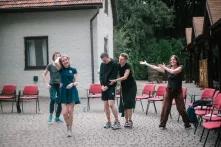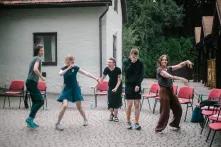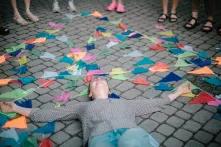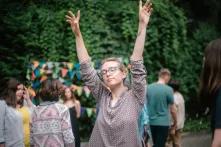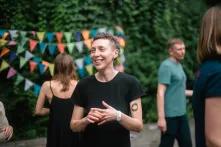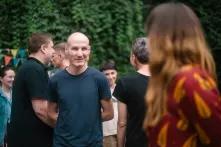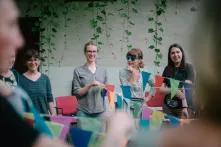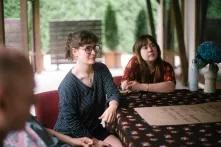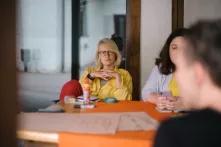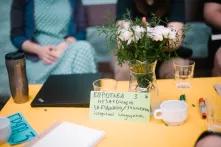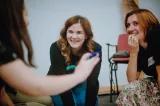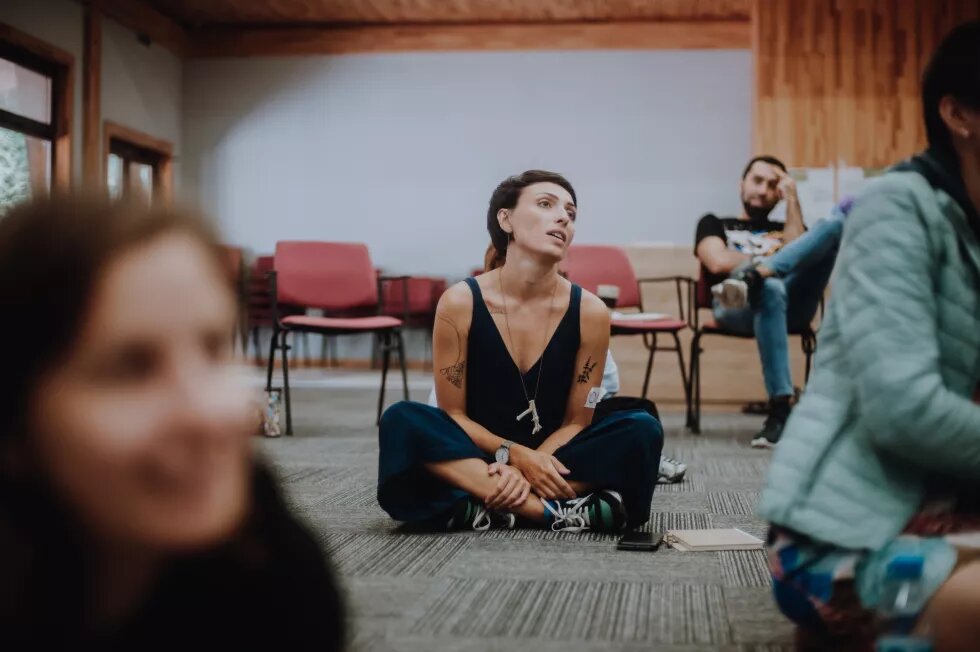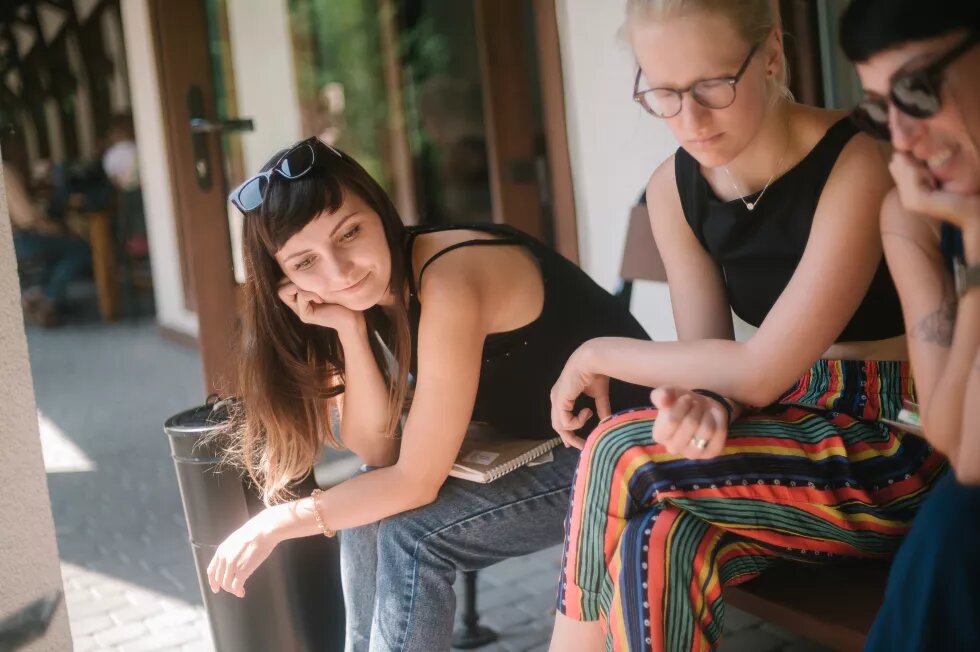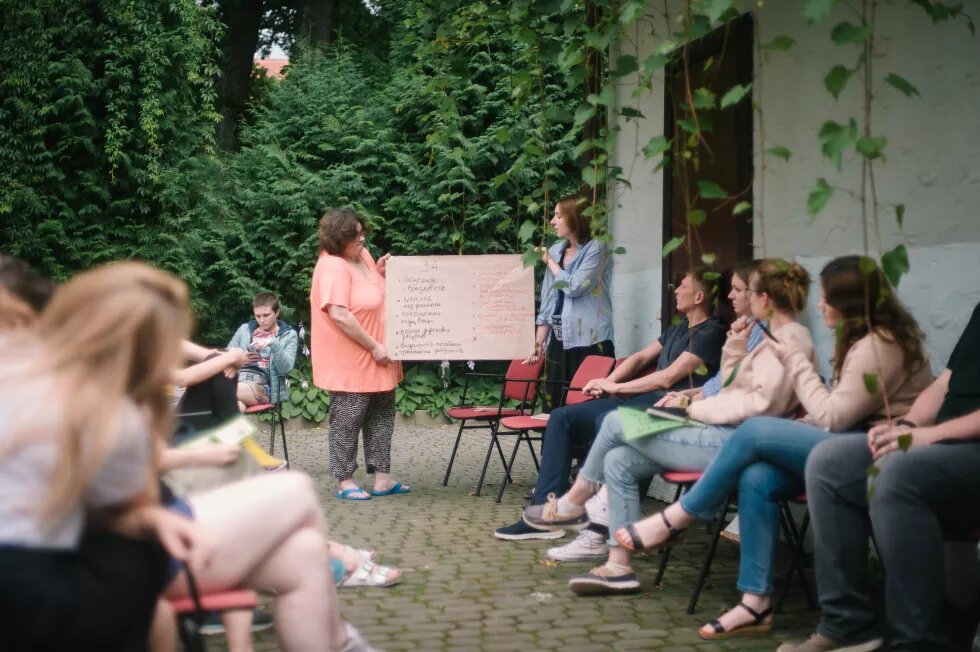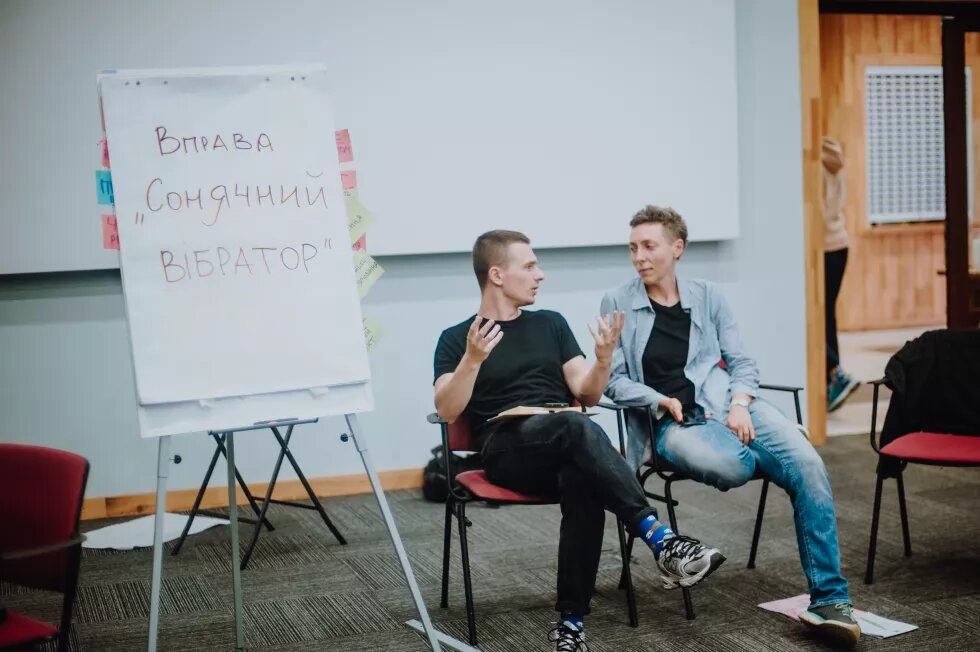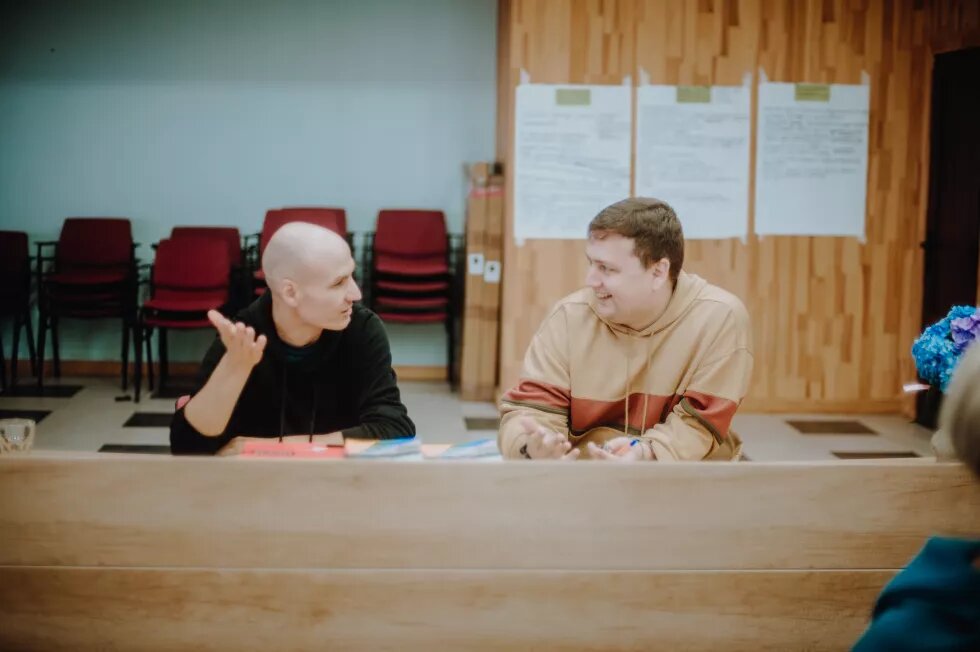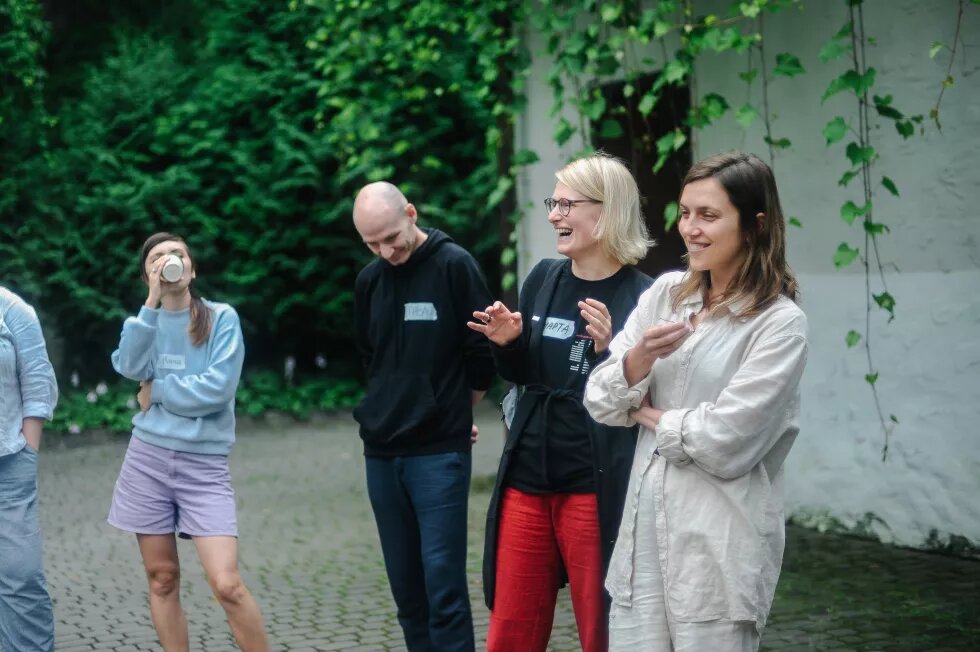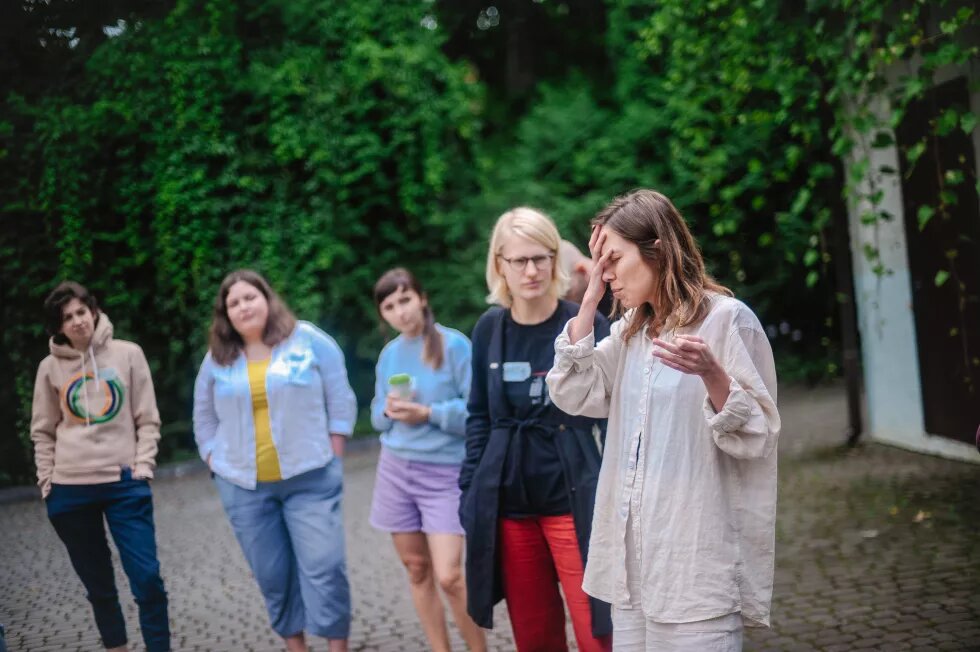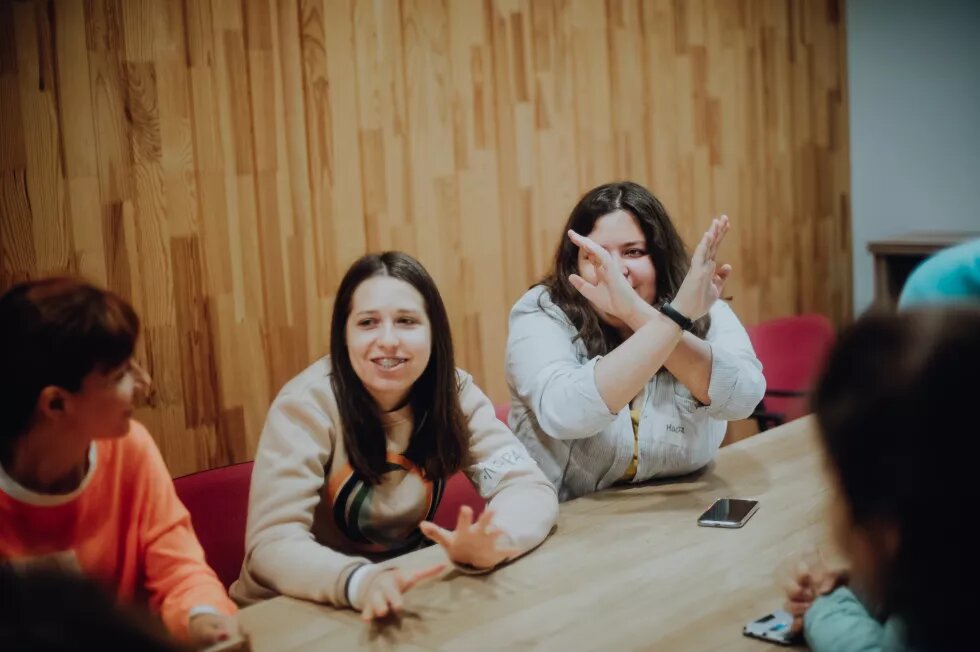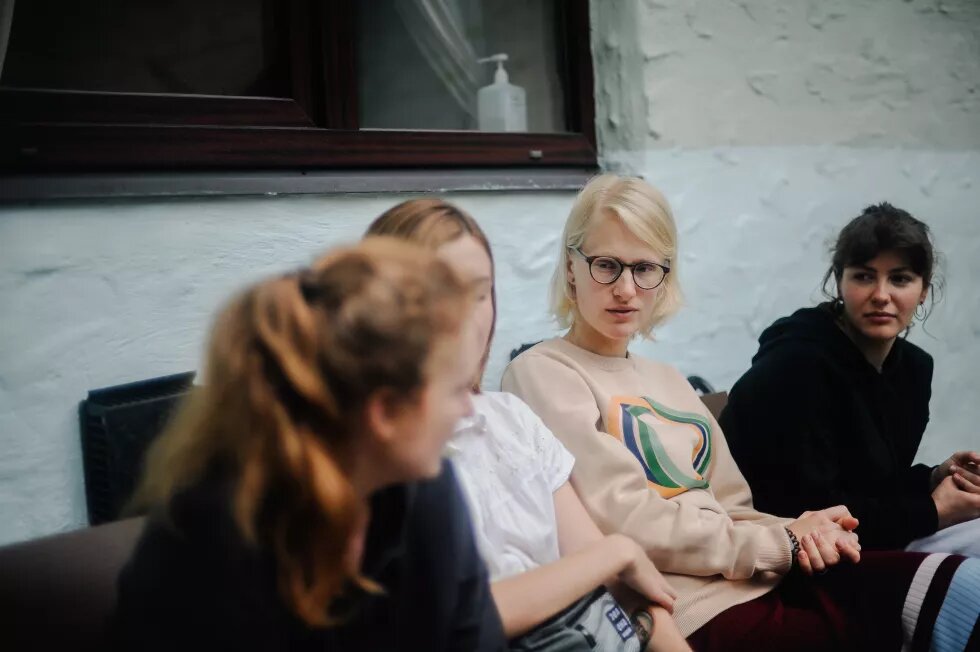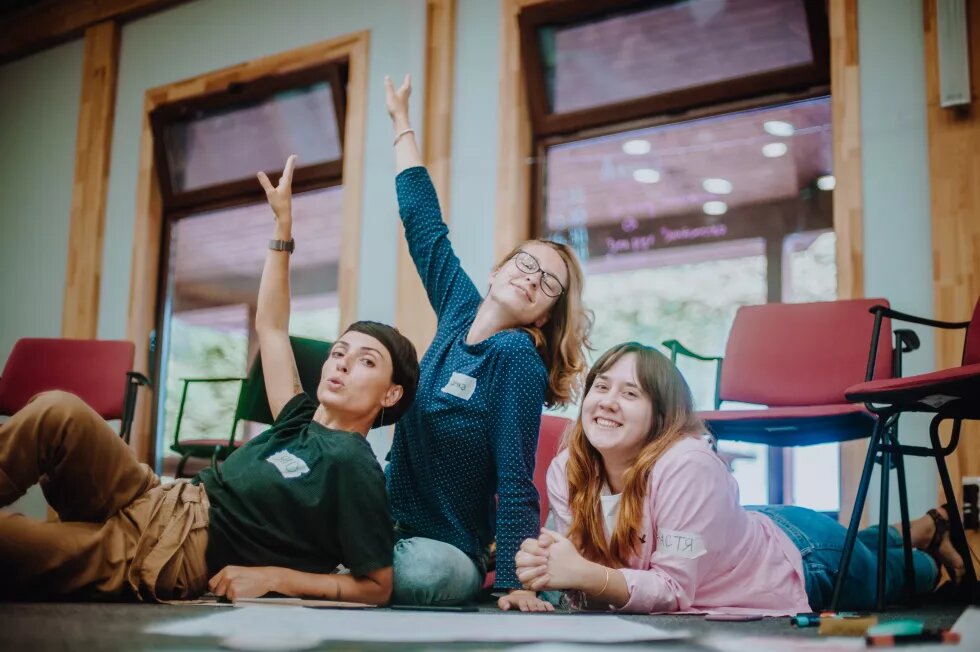
The Green Academy is an annual educational program. During the week, 25 participants from various fields
discuss and reflect on green topics: gender equality, participatory democracy and environmental protection.
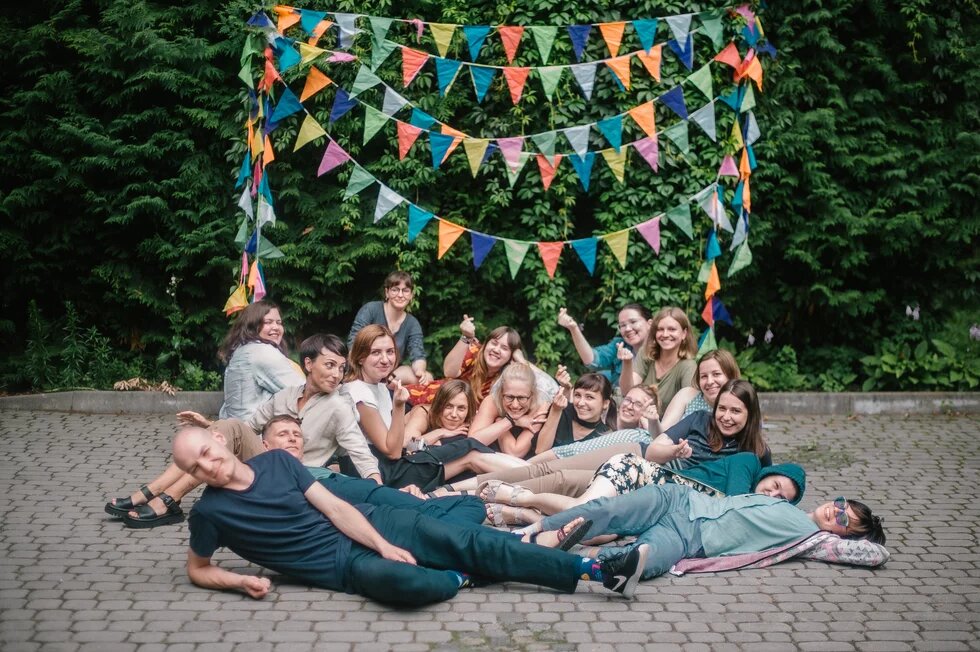
**
What Green Academy 2021 Was About
The Green Academy Summer School is part of the educational program created by the Heinrich Böll Foundation. It is based on a sustainable and just society with green values: social justice and gender equality, environmental sustainability and participatory democracy.
Every year, the Academy is attended by representatives of various sectors: urban development, environmental and feminist movement, cinema, analytical research, journalism, cultural management, human rights and others. During the discussions and debates, the participants reflected on how green values were interconnected and how to implement them in practice in Ukraine.
This year's program consisted of several thematic blocks, which detailed each of the green values. The topics included basic democracy and social justice, what to do about the environmental crisis, how to take care of the environment in the daily life, how to achieve stability and solidarity in activism, how to engage other people in political changes and integrate the gender-sensitive approach into one’s work.
He adds that the Green Academy helped him see the points of intersection in people from different walks of life: “And that there is room for utopia and a positive project for the future, and that it is impossible without green values.”
Utopia
At the Academy, there were many talks about the perfect world. The participants also talked about ways to engage in global processes and look at one’s own subjects in a different way, through other people’s experiences.
Among the discussions that gave the participants most food for thought was the one about how global problems affect the most vulnerable groups and what one can do (and should one?) to overcome the consequences of these problems.
Not all people have the same influence on what happens in society—and this was also one of the topics of discussion during the studies. For example, who is responsible for large-scale emissions—one person who does not sort garbage, or global corporations?
The main achievement of the Green Academy, adds Olha, is that it helped her with her own impostor syndrome. “The opportunity to talk with various people from various sectors as equals while feeling confident in your position—this experience is something I still come back to when I feel uncertain about whether my opinion matters.”
Reflections
One of the Academy’s goals is to provide the participants with some space to think. The training week is an intense program of speaking, listening, and thinking, but what is equally important is what the participants bring back with them after the Academy.
“I have higher expectations of myself and of other people now, because the Green Academy set a very high standard: how you can affect change and what can be done. It really inspires you to act more, to feel strong, to affect others and feel responsible for this influence,” says Marta Popyk.
The topics covered at the Green Academy have always been part of her daily life, Marta says, but she had never before had an opportunity to think about them in more professional and philosophic terms, together with others.
“After the Academy, I have grown less tolerant to certain things. I used to keep silent when I noticed that people treat nature or other people badly, but I do not anymore. Silence does not change anything, so, perhaps, it makes sense to enter into conversations and even conflicts with people—because conflicts also reveal the truth. Now, I feel responsibility to respond, to share information, experience, values with others,” adds Marta.
Next year, the fifth Green Academy is set to take place. Information about the new selection will be published on the Academy’s official Facebook page, on Instagram, and on the Foundation’s website. However, you can already read there how the selection will take place, try your hand at last year's test assignments and read more about the Academy participants. And to make sure that your wait is not too long, you can read a booklet about green values by Ukrainian experts and activists working in environmental protection, human rights, and urban policies. Among other things, they try to answer the questions whether green values are relevant today, whether sorting trash is enough to avoid climate change, and how to make sure that decision-making accounts for everyone’s needs.
